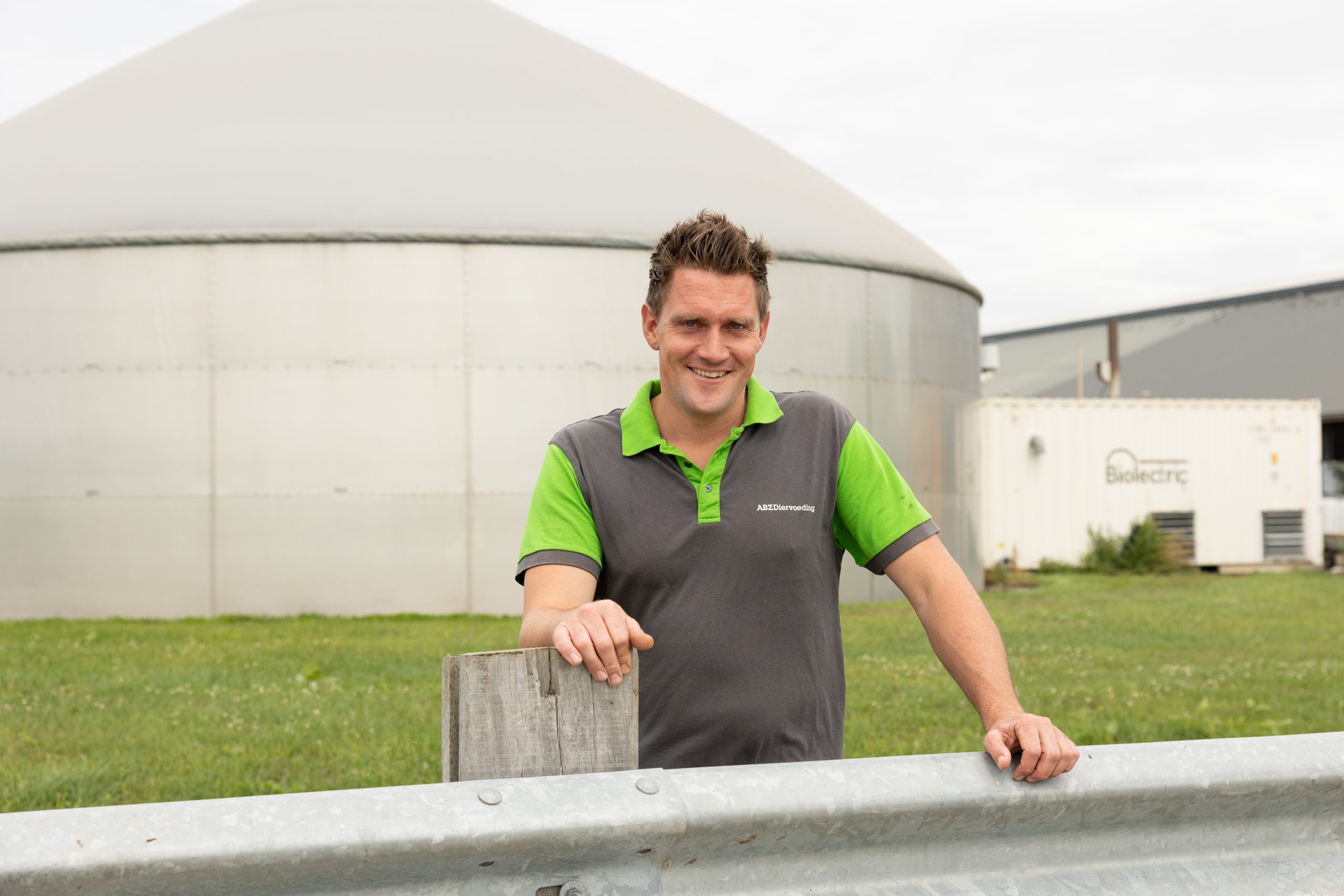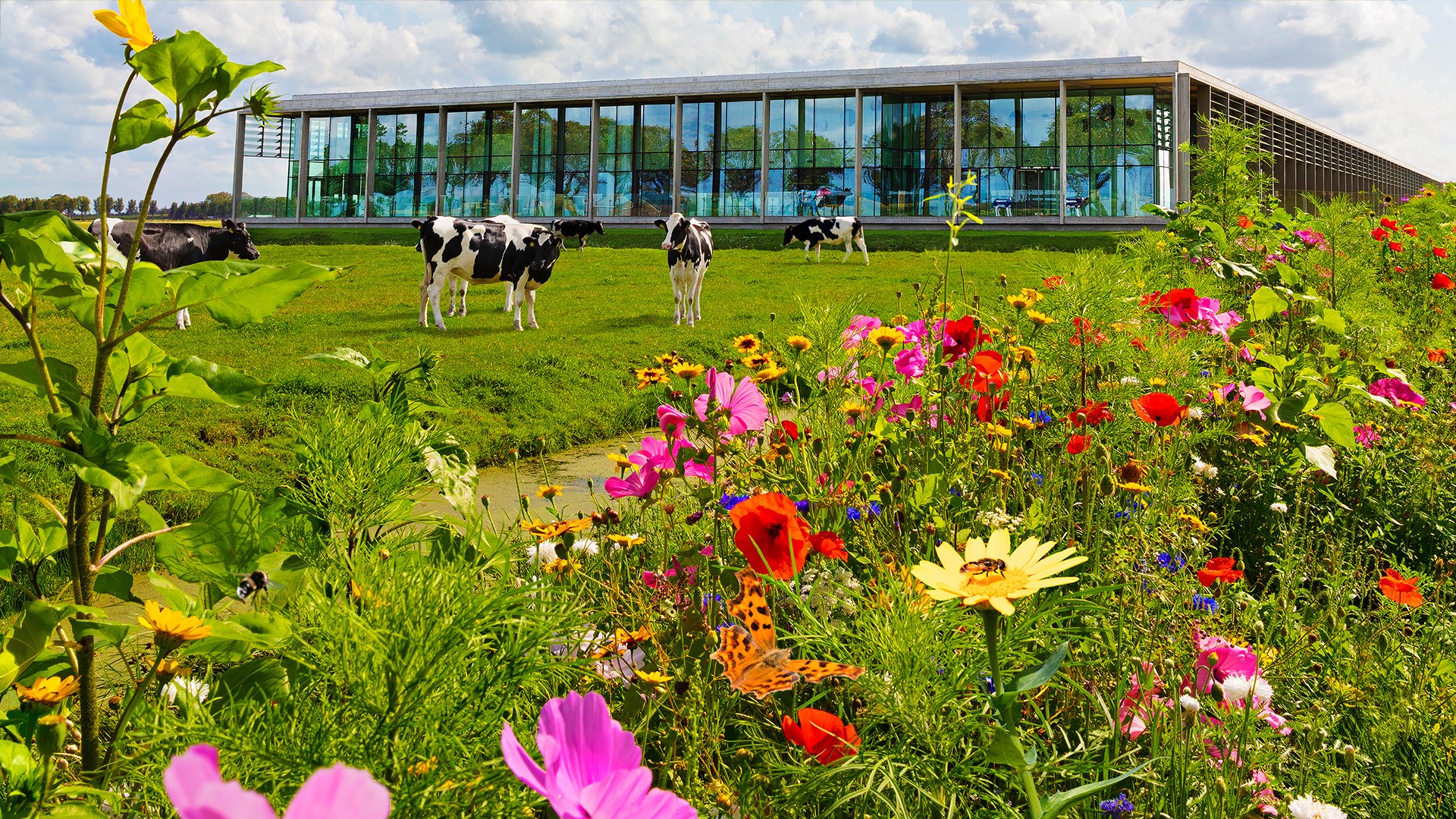Livestock farmer Sjoerd farms with a manure digester
Manure and slurry, neat words for cow poop and urine, together make the harmful gas ammonia. Farmer Sjoerd van der Helm from Zuidschermer has found a solution: a fermenter that captures the gas and converts it into electricity. Lots of electricity. And also heat and a residual product that the cows enjoy lying in their stalls.
Such an installation has a mono-manure digester. Sjoerd bought it when renovating his existing barn and building a new one. The floors could then be made liquid-tight right away. Now every hour a special manure scraper passes over the floors and pushes all manure and slurry to a large container. In this enclosed space, ammonia gas is created just as before, but there it has no chance to escape. On the contrary: two large engines run on it, which then drive a generator that turns it into electricity. Not that much, either: about 370,000 kWh of clean energy on which the entire company can run and another 150,000 to 170,000 kWh remains to be fed back into the electricity grid.

Thin and thick fractions
Even more happens in the mono-manure digester. It fits six hundred cubic meters, 600,000 liters, of manure and slurry. Six times a day, four cubic meters are pumped out and another four cubic meters of fresh manure is added. "There's also just manure coming out again. We separate that into what we call a thin and thick fraction," Sjoerd says. "The thin fraction we drive out in the summer to fertilize the land. This is because we also partly grow our own feed for the cows so we don't have to get it from far away." The thick fraction is further processed in a process called "hygienization. This involves heating it in a large drum to seventy degrees for at least 24 hours. Again, thanks to free electricity from the digester. After that hour, a kind of compost is created that no longer contains bacteria, smells like potting soil, and is ideal as soft bedding in the cows' stalls. In technical language: biobedding.
Sustainable gas
Sjoerd was already happy with the mono-manure digester because of the great yield in electricity. The biobedding is a nice bonus. But there is more. During the fermentation process, in addition to gas, a lot of heat is generated. When he bought the installation a few years ago, that was seen as a not so valuable by-product with which you couldn't do much. Yes, the company connected a boiler to it, for example, but that was about it. While twice as much heat is produced as electricity... A shame, then, and the increased gas prices are all the more reason to take a good look at possible uses. For example, a fellow farmer supplies hot water to houses in a nearby residential area. Sjoerd is also investigating with various parties how his sustainable heat can also be put to a climate-friendly use.

